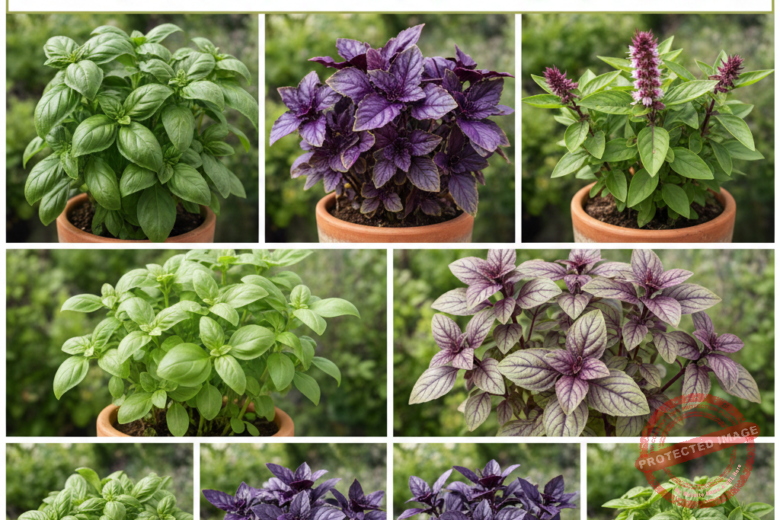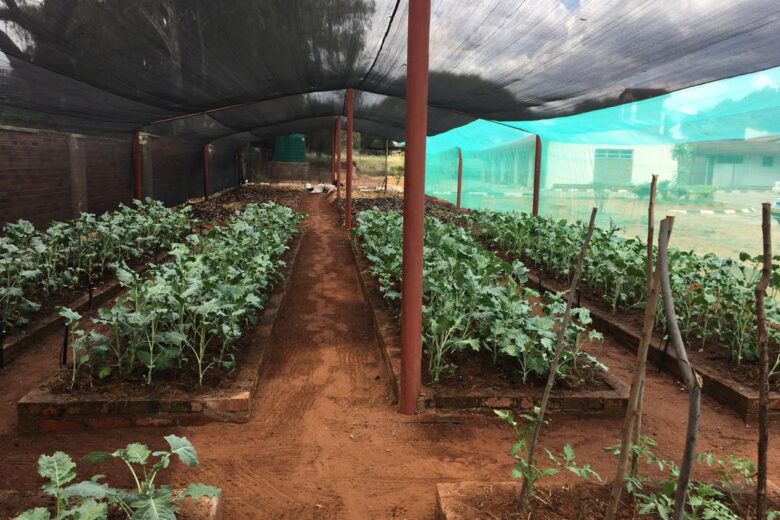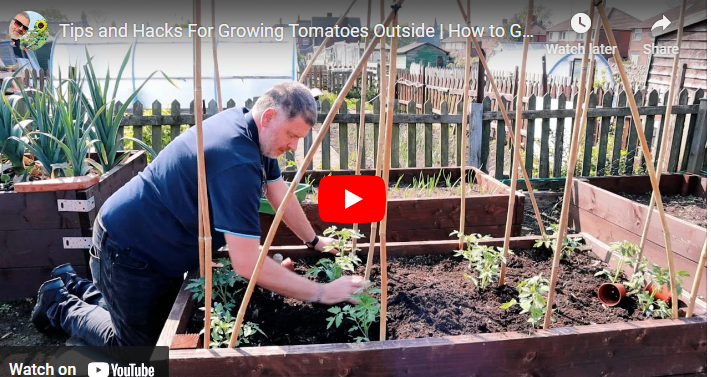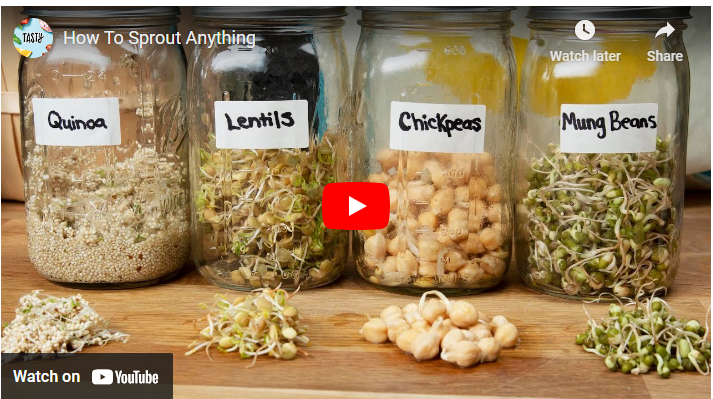Ginger is a spice that is used in many dishes and drinks. Ginger is a popular spice in many countries around the world. It is also used for medicinal purposes. The roots, leaves, and stems are edible and flavorful, making ginger an essential ingredient in many cuisines.
The process of growing ginger is not difficult, but it does take time. The steps that you need to take care selecting seed varieties, selecting the planting site or container, preparing the site, planting, ginger plant care, maintenance, and harvesting.
It can be grown on farmland, however, the best method to grow ginger in Texas is to grow them in pots or any other planter because of the varying soil and harsh frost weather in the area.
To help you successfully grow ginger in Texas climates, which of course not everybody knows how to do, we have prepared this article to teach you all about the process of growing ginger and what you need to do before planting it.
How To Grow Ginger In Texas Step By Step
The steps outlined and discussed here are ideal for growing ginger in Texas either indoors using pots or on the ground in your garden or large farmland.
Step 1: Select Seed Varieties
Ginger comes in a variety of species. The commonly grown edible ginger specie is Zingiber officinale. Ginger root is available at both grocery stores and plant nurseries.
Read Also: How to Start Bamboo Farming in Texas [Practical Guide]
Look for young, healthy roots when selecting a ginger root to plant. It will be a plus if the ginger root already has growth buds (known as eyes) on the roots because they have already started to grow.
Step 2: Select Planting Site or Container
Ginger can be grown outdoors if the local soil is light and drained adequately. Also, if the weather is not harsh.
Ginger prefers rich, loamy soil with moisture retention but not too much. The site should be in an area with morning sun only or partial shade. The growing area needs to be protected from the wind.
Read Also: How to Grow Tomatoes in Texas [Practical Guide]
Warm soil temperatures are required, preferably between 71 and 77oF (22-25oC). Because ginger is a tropical plant, it cannot endure temperatures below 50F. (10C).
If you are planting in a pot or planter, make sure that your pot has drainage holes and place it near a window or outside during the day.
Step 3: Prepare the Site
You need to first prepare land for growing. Clear unwanted plants of any size from the site, and make sure you till and plow the land to make it fit for ginger planting. Apply manure to balance the soil nutrient and water mildly.
If you will be planting in a pot or any other container, you should combine garden soil with well-rotted compost in an equal proportion. Purchase rich potting soil instead if your soil is of poor quality or contains a lot of clay.
Read Also: How To Grow Tomatoes In Grow Bag [Expert Tips]
Step 4: Planting
Ginger is a perennial plant that can be grown in Texas. There are three ways to grow ginger: planting ginger rhizomes, planting ginger seeds, and planting ginger root pieces.
Also, the best time to plant them is in the fall or late winter, when the ground has cooled down and all of the frosts have disappeared.
If you are planting in rows on a farm bed, make sure you plant each piece 8 inches (20 cm) apart. If you are planting in pots, plant one ginger piece per large pot that is 14 in./35 cm in diameter.
You should plant each ginger seed, rhizome, or ginger root piece about 1-2 inches deep in loose soil with the buds pointing upward in lots of organic matter mixed in.
The roots need about two months of cold temperatures before they will sprout in springtime.
Step 5: Ginger Plant Care and Maintenance
Planting is not the final step when growing ginger in Texas. You have to care for and maintain the plants by doing the following.
Regular Watering
You have to water the plant lightly right from the moment they are planted to help retain soil moisture. Make sure you check daily, the soil moisture to avoid it becoming entirely dry.
If water does not flow fast, limit watering or improve drainage to prevent soggy soil from quickly rotting your plants.
Fertilizer Application
If the soil around the ginger is rich, fertilizer application is not necessary, especially if compost has been added.
Fertilize with a modest amount of full liquid fertilizer once a month if the soil fertility is poor or you want to increase yield.
Mulching
Depending on the weather, mulching is optional but still necessary. Once the ginger has sprouted, cover it with mulch to keep it warm and protect it from weeds, which can quickly outcompete the ginger’s slow growth.
If soil temperatures drop below 50°F (10°C) throughout the growing season, a heavy layer of mulch is required.
If planted in a pot, for the winter, it is advised to bring the ginger plant inside.
Step 6: Harvesting
If ginger is allowed to grow in the ground, its flavor becomes considerably stronger. The stems normally die at least 8 months after planting, that is when the ginger rhizome can be dug up. The plant won’t die as long as you leave some eyes when you cut off pieces for cooking.
Varieties of Ginger in Texas
Ginger comes in different varieties, and each has its own unique flavor, aroma, and texture. In Texas, the most commonly grown ginger varieties are:
- Yellow Ginger: This is the most common variety grown in Texas. It has a milder taste and is suitable for cooking.
- Blue Ring Ginger: This variety is native to Hawaii and has a spicy, peppery taste.
- Galangal Ginger: This variety is similar to yellow ginger, but it has a stronger, more pungent flavor. It is commonly used in Thai and Indonesian cuisine.
How much is Ginger sold in Texas
The price of ginger in Texas varies depending on the season, demand, and supply. On average, a pound of ginger costs between $3 to $5. You can purchase ginger at local grocery stores, farmers’ markets, and online stores.
Best Agronomic Practices to Engage in Growing Ginger in Texas
Here are some best agronomic practices for growing ginger in Texas:
- Soil Preparation: Ginger grows best in well-drained soil with a pH range of 5.5 to 6.5. Add organic matter like compost or manure to the soil to improve its texture and fertility.
- Planting: Ginger grows from rhizomes, which are small, root-like structures. Plant the rhizomes in early spring, about 2 inches deep and 8 inches apart.
- Watering: Ginger needs regular watering, especially during hot, dry weather. Water the plants thoroughly, but do not overwater them as it can lead to root rot.
- Fertilization: Apply a balanced fertilizer like 10-10-10 every four to six weeks to promote healthy growth.
- Mulching: Mulch the ginger bed with straw or leaves to conserve moisture and prevent weed growth.
Projected profit of Ginger in Texas
The profitability of growing ginger in Texas depends on several factors such as the size of the operation, yield per acre, market demand, and selling price. On average, a small-scale ginger farm can generate a net income of $10,000 to $15,000 per acre.
Common Diseases and Pests of Ginger
Here are some common diseases and pests that affect ginger in Texas:
- Root Rot: This is caused by overwatering or poorly drained soil. Symptoms include wilting, yellowing of leaves, and root decay. To treat, remove infected plants and improve soil drainage.
- Fungal Diseases: Fusarium and Pythium are common fungal diseases that affect ginger. Symptoms include leaf spots, stunted growth, and plant death. To treat, apply fungicides and maintain good cultural practices.
- Ginger Weevil: This pest feeds on ginger roots, causing damage to the plant. Symptoms include wilting and yellowing of leaves. To prevent, apply insecticides and practice good sanitation by removing infected plants.
Different Propagation Method of Ginger
Ginger can be propagated through two methods:
- Rhizome Division: This is the most common method of propagating ginger. Divide the rhizomes into small pieces with at least one bud each and plant them in well-drained soil.
- Tissue Culture: This is a more advanced method of propagation that involves growing ginger in a sterile laboratory setting. It requires specialized equipment and expertise.
What Is The Best Month To Plant Ginger?
The best month to plant ginger is the month of March.
How Long Does It Take To Grow Ginger?
Ginger takes about 8 to 10 months to grow fully and be ready for harvest.
Can You Plant Ginger Root From The Grocery Store?
You can grow ginger from the grocery store as long as it has not been sprayed with growth inhibitors which do not allow the plant to grow.
Is Ginger Easy To Grow?
Ginger is easy to grow and be planted by anyone as long as the proper step is followed, and the ideal condition is provided for the plant.
Can You Eat Ginger Plant Leaves?
Ginger leaves have a mild ginger flavor and are edible, but the leaves can be difficult to chew and digest.
Can I Grow Ginger From A Piece Of Ginger?
You can grow ginger from a piece of ginger by planting it whole or cut into pieces as long as there is an eye.
Can Ginger Grow In Texas?
Ginger can be grown in Texas, but it is best grown in a pot because of the extremely cold climate.
Can Ginger Grow In Pots?
You can grow ginger in pots and harvest the tasty root crop once it is mature.
How Often Should You Water Ginger?
Ginger needs regular watering, especially during the growing season. Ginger requires at least an inch of water every week
Do Ginger Plants Need Full Sun?
Ginger thrives in sunlight locations with a minimum of 6 hours of sunlight daily.
Can I Grow Ginger Indoors?
You can grow ginger indoors as long as you can provide it with sunlight, warm and humid weather, as well as rich and moist soil.
How Do You Know When Ginger Is Ready To Harvest?
Once you see that the ginger plant stem is dead and the soil has dried out, it is a sign to begin harvesting your ginger.
Can I Leave My Ginger In The Ground Over Winter?
It is not recommended to leave your ginger in the ground over winter as this edible root plant cannot survive temperatures that are below -10oC
Will Ginger Grow In Central Texas?
You can grow ginger in central Texas, and it is best to plant in spring when the temperature is still warm.
How Do You Harvest Ginger Without Killing Plants?
You can harvest ginger without killing plants by cutting off a small section of the root that you need with a sharp knife. Then you should replace the soil and water properly.
Where To Buy Ginger Root To Grow
You can buy ginger root to grow from a retail store or gardener. You can also look up the internet and order ginger root to grow as well.
How To Grow Ginger In Pots
- Get a planting pot with draining holes
- Prepare potting mix and or compost
- Fill the pot with the potting mix
- Place the ginger root on the soil allowing the eye bud to point up
- Cover with 2 inches of soil and water lightly
- Place the container in a sunny area or use grow light if indoors
- Apply mild fertilizer
How To Grow Ginger In Water
Step 1: Get your hydroponic system ready. The tray you’ll be using should have a depth of 4-6 inches (10-15 cm).
Step 2: collect germinated rhizomes from the garden or a planter and rinse their roots once stems and some leaves have developed.
Step 3: Add 2 inches (5 cm) of growing medium to the hydroponic container, then place the new ginger plants on top and spread out the roots. Plants should be spaced approximately one foot apart. To keep the plants in place, cover the roots with growth material.
Step 4: Connect the hydroponic system to water and feed the plants every 2 hours with a typical hydroponic nutrition solution. Keep the water pH between 5.5 and 8.0. You can put off the light after exposing the plant to 18 hours of light.
Step 5: The plants will grow rhizomes and be ready to harvest in four months. Harvest the rhizomes, wash and dry them, and store them in a cool, dry place.
How To Grow Ginger At Home
You can grow ginger in your backyard or make use of a planting container. Whichever you adopt, make sure you:
- Prepare the soil and add manure or compost if the soil lacks nutrients.
- Get your garlic variety
- Slice off the fingers so that rhizomes will be 1 to 2 inches long
- Dry the rhizomes between 34 to 48 hours
- Place the ginger root with the eye bud pointing upward
- Cover with 2 to 3 inches of soil
- Water lightly
- Planting or place in a location that receives sunlight
Best Container For Growing Ginger
A wide, flat container is best for growing ginger.
How To Harvest Ginger Without Killing Plant
Simply cut off a small section of the root so that you won’t kill the plant completely and allow it to regrow.
How To Grow Ginger Indoors
To plant ginger indoors, you will need to
- Get a planter with draining holes
- Fill shallow with rich potting mix or compost
- Place the ginger root with the eye bud pointing upward
- Cover with 2 to 3 inches of soil
- Water lightly
- Make use of growing light for indoor planting or place in a location that receives sunlight
Ginger Growing Stages
Ginger growing stages are as follows:
- Pre-planning
- Planting
- Germinating stage
- Rhizome development stage
Conclusion
Having read this material on how to grow ginger in Texas, you now know the necessary steps to take to successfully grow yours. Ensure you adhere to the outlined steps here to the latter. Let us know how helpful you find the tips discussed here.



